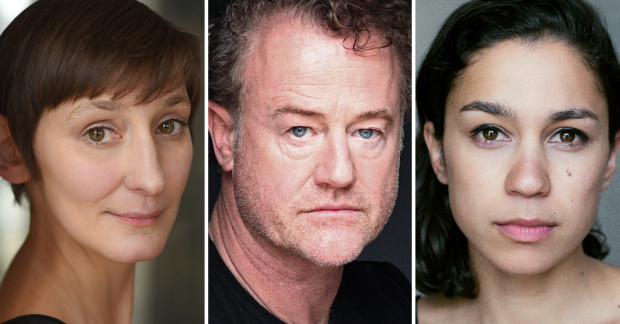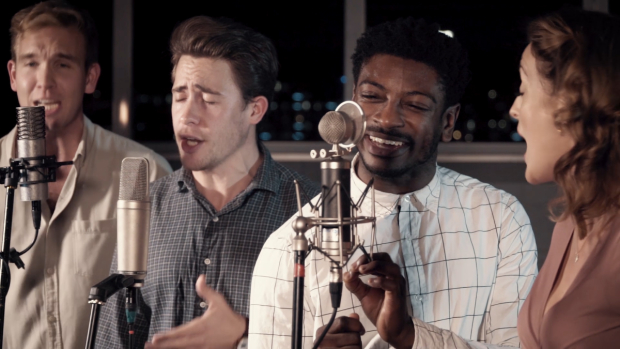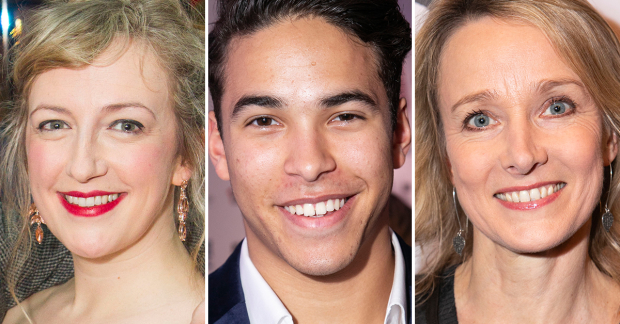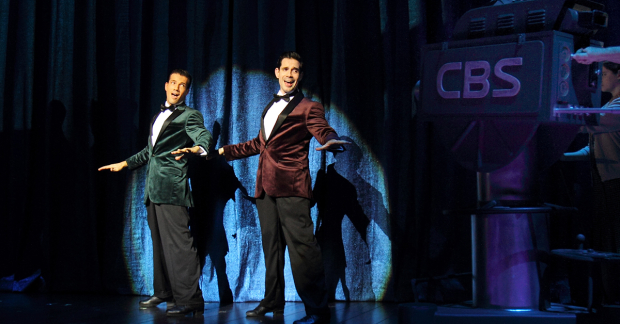Review: Standing at the Sky's Edge (Sheffield Crucible)
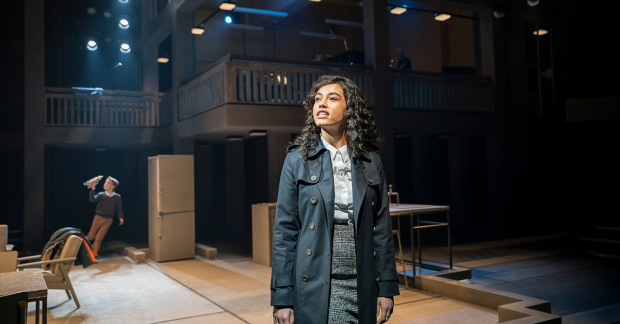
© Johan Persson
Not for the first time, theatre in Sheffield has come up with a musical that celebrates the uniqueness of the city through the joy in life that transcends the problems of poverty, violence and political repression. In the 1970s The Stirrings in Sheffield on Saturday Night became what has remained an iconic work for the city. It's never really travelled and maybe the same will be true of Standing at the Sky's Edge which, though a very different show, has the same ability to relate instantly to the Sheffield-ness of the audience.
Reviewing Standing at the Sky's Edge demands consideration of two back-stories. Park Hill in Sheffield has a history not dissimilar from other ground-breaking housing developments of its time, but heightened by its prominent position and unique design, plus its designation as a listed building, it has become a symbol of Sheffield, both loved and hated. Officially opened in 1961, Park Hill was initially a paradise for working class occupants escaping from the slums but took an increasingly steep downward trajectory over the next 40 years. It was closed in 2003 and now, no longer council-owned, has partially re-opened to a much more middle-class clientele.
The other is more a back catalogue. Sheffield-born guitarist and musician (formerly of Pulp) Richard Hawley has written some new songs for Standing at the Sky's Edge, but much of the impact of the show comes from new treatments of existing Hawley songs. Chris Bush has shown great skill in knitting together these songs and all that history into a remarkably coherent show.
Bush focuses predominantly on three sets of occupants of the same flat: a newly married couple, Harry and Rose, aspiring and optimistic working class, in 1960; a family of refugees at the time when Park Hill is becoming a no-go area; an upper-class singleton fleeing a broken relationship in London who finds a provincial bolt-hole in the newly yuppified Park Hill. These initially seem stereotypical and the opening stages of the play, at times placing all three periods in the flat simultaneously, are a bit mannered, but, as the years pass, the developments are unexpected and the cross-overs from story to story ultimately very moving.
The word was that this is a "big" production – and that is certainly true. A main cast of 14 (plus two children) is supported by a similar number from the Sheffield People's Theatre and a seven-piece band. The wide-open spaces of the Crucible stage have room for a skeleton of Park Hill (designs by Ben Stones), with the first-floor walkway frequently occupied by singers and the band settled in behind, the flat itself on stage level. Robert Hastie's meticulous and expansive direction sometimes seems a bit too concerned with using all the space and all the manpower, as in the spectacular act one one finale as Park Hill succumbs to the druggies, the vandals and the hooligans.
In Tom Deering's arrangements – a small string section prominent – many of the songs emerge as sensitive, intensely personal statements, though the title song gets a splendidly large-scale anthemic treatment to kick off the second half. Bush's ability to find dramatic value in existing lyrics is well illustrated by a song such as "For Your Lover Give Some Time" where, in turn, each of the three main stories is advanced in a powerful song-speech-song treatment.
Hastie secures excellent performances from all his cast, as does musical director Will Stuart – the songs are spread around the cast to great effect. Ultimately it's the strong women who make the greatest impact, with Rachael Wooding as Rose and Faith Omole as Joy, the talented daughter of refugees, registering more and more powerfully and sympathetically as the evening progresses, and Alex Young getting the laughs as fish-out-of-water yuppie Poppy, but also finding the depth in the character.
Overall it's as a highly imaginative ensemble production, with cunning use of fine songs, plus an irresistible appeal to Sheffield patriotism. Standing at the Sky's Edge seems destined for a sell-out run at the Crucible.



